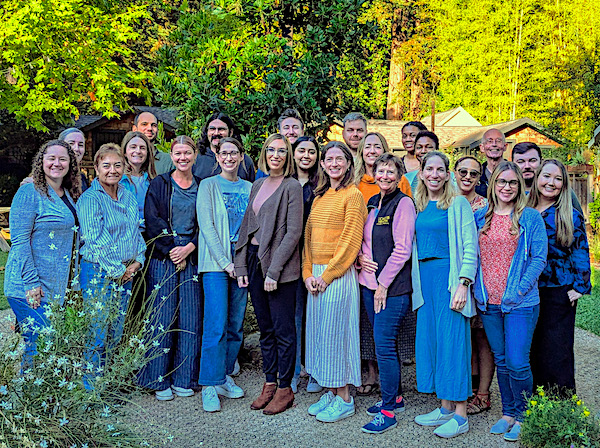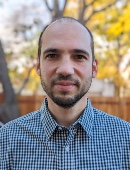About Us
The UC Davis Violence Prevention Research Program (VPRP), an internationally-recognized research program under the Centers for Violence Prevention, is a multi-disciplinary program of research and policy development focused on the causes, consequences, and prevention of violence. We place a particular focus on firearm violence, and on the connections between violence, substance abuse, and mental illness.

We helped develop the public health approach to violence in the 1980s, and we apply that approach to everything we do. Our mission is to develop and disseminate the research evidence on which informed policy and practice are based. Our approach to research and prevention is hemispheric, focusing on areas that face the highest burden from violence.
VPRP research informs policies and programs that prevent violence and empowers communities to help realize a safer future. Read our Research page to learn how VPRP is developing knowledge and driving change.
VPRP’s director is Garen Wintemute, M.D., M.P.H., an emergency physician and one of the nation’s leading firearm violence researchers and policy experts. Learn more about our team below.
-
Garen Wintemute, M.D., M.P.H.
View Bioarrow_forwardDirector of VPRP and CA FVRC
Professor, Emergency Medicine
Inaugural Susan P. Baker-Stephen P. Teret Chair in Violence PreventionGaren Wintemute’s early work helped create the public health approach to violence prevention. His current research evaluates some of California’s innovative firearm violence prevention policies and assesses the broader social and political effects of firearm violence.
Wintemute is a practicing emergency medicine physician.
PubMed, Google Scholar -
Amy Barnhorst, M.D.
View Bioarrow_forwardProfessor, Psychiatry and Emergency Medicine
Associate Director, VPRP and CA FVRC
Director, BulletPoints ProjectAmy Barnhorst is an emergency and inpatient psychiatrist whose experience doing violence and suicide risk assessments led to her interest in firearm injury prevention. Drawing on her previous career as an educator, she is active in medical education and works with both state and federal legislators to craft evidence-based firearms and mental health laws.
Barnhorst is a nationally recognized expert on these topics and her work has been featured in the New York Times, Psychology Today, and other media outlets.
PubMed -
Shani Buggs, Ph.D., M.P.H.
View Bioarrow_forwardAssistant Professor, Emergency Medicine
Shani Buggs is a health and public policy scholar with expertise engaging federal, state, and local officials, agency leaders, and organizations on comprehensive and community-driven violence intervention and prevention efforts. She uses qualitative, quantitative, and mixed-methods approaches to examine state-level firearm policies and local-level violence reduction initiatives.
In her research, Buggs strives to consistently center the experiences of individuals most impacted by violence and interrogate structural determinants of health to advance equity, safety, and well-being. In 2021, she was named the inaugural California Wellness Foundation Fellow in recognition of her commitment to high-quality and community-centered firearm violence research.
PubMed, Google Scholar -
Amanda Charbonneau, Ph.D., M.P.P.
View Bioarrow_forwardAssistant Adjunct Professor, Emergency Medicine
Amanda Charbonneau is a social scientist using a range of quantitative methods to explore questions at the nexus of policy, psychology, and law.
Charbonneau’s research includes work on policies and practitioner decision-making in the criminal-legal and health systems. Charbonneau is also an Associate Policy Researcher at the RAND Corporation.
PubMed -
Rose Kagawa, Ph.D., M.P.H.
View Bioarrow_forwardAssociate Professor, Emergency Medicine
Rose Kagawa uses epidemiologic and causal inference methods to identify opportunities for violence prevention and to evaluate social and firearm policies. Her research on violence seeks to identify the ways in which the social determinants of health and violence, such as poverty, education, and neighborhood environments, can be modified to reduce risk of violence perpetration and victimization.
Kagawa’s topics of study include universal background check policies, neighborhood-level resource allocation and the community safety environment, poverty reduction programs, homelessness, and the remediation of vacant and abandoned buildings.
PubMed, Google Scholar -
Nicole Kravitz-Wirtz, Ph.D., M.P.H.
View Bioarrow_forwardAssociate Professor, Emergency Medicine
Nicole Kravitz-Wirtz is a population health sociologist specializing in mixed-methods research on the social determinants of health and health equity. She is particularly interested in understanding and addressing the socioeconomic and policy forces and systems of power and privilege that create and concentrate inequitable community conditions of high risk factors associated with violence/illness and low protective factors associated with safety/well-being.
Kravitz-Wirtz’s core areas of study include: neighborhood-health effects and effect modification over the life course; causes, consequences, and prevention of structural and community violence exposure, especially among youth and young adults; firearm ownership-related motivations, behaviors, and injury prevention policies; and hospital- and community-based violence intervention strategies.
PubMed, Google Scholar -
Hannah S. Laqueur, Ph.D., M.P.A.
View Bioarrow_forwardAssociate Professor, Emergency Medicine
Hannah Laqueur is a quantitative social scientist specializing in data-driven analyses of crime and violence, with a central focus on firearm violence. Her research includes work on substance use and drug policy, crime policy, and decision-making and risk assessment in the criminal justice system.
Laqueur employs a range of econometric, statistical and machine learning techniques for inference and prediction.
PubMed, Google Scholar -
Aimee Moulin, M.D.
View Bioarrow_forwardProfessor, Emergency Medicine Behavioral Health
Director for the Emergency Department at UC DavisAimee Moulin is an emergency medicine physician with a dual appointment in the department of psychiatry. She is an expert on opiate use disorder, mental illness, health policy, and suicide.
Moulin is director and co-principal investigator of CA Bridge, a program transforming addition treatment by providing, technical assistance, and coaching to hospitals, thus helping them take on a critical role in solving the overdose crisis.
PubMed -
Veronica Pear, Ph.D., M.P.H.
View Bioarrow_forwardVeronica Pear, Ph.D., M.P.H.
Assistant Professor, Emergency MedicineVeronica Pear is a social epidemiologist studying modifiable upstream causes of firearm violence that can be leveraged to effectuate widespread, enduring reductions in violence-related harms. These include policies, social/structural conditions, and features of the local environment. She applies a range of methods to generate robust, policy-relevant research, from causal inference to mixed methods.
Pear’s work on California’s gun violence restraining order law (known colloquially as a “red flag” law) has influenced the state and national conversation on this policy.
PubMed, Google Scholar
-

Amanda Aubel, M.P.H.
Research Data Analyst
Amanda Aubel studies the scope and impacts of exposure to violence and innovative prevention strategies using both quantitative and qualitative methods. She helps design, implement, and analyze an ongoing statewide survey on firearm ownership in California. She also supports the development and evaluation of the BulletPoints Project, which teaches healthcare providers how to reduce the risk of firearm injuries among their patients.
Aubel is trained in public health with an emphasis on the social determinants of health, health equity, and program evaluation.
PubMed, Google Scholar -

Sativa Banks, Ph.D., M.P.H.
Postdoctoral Scholar
Sativa Banks investigates the links between intimate partner violence (IPV) and sexual and reproductive health outcomes with a focus on how violence exacerbates health disparities. Through her work, she advocates for policies that address the structural determinants of health. She is most excited to develop community-centered interventions that empower vulnerable populations, promote health equity and advance violence prevention efforts.
Banks is trained in public health with an emphasis on social policy, sexual health, reproductive governance, and healthy equity.
PubMed -

Angela Bayer, Ph.D.
Director of Engagement and Impact
Angela Bayer designs, implements, and evaluates educational materials and projects for firearm injury prevention. She manages the BulletPoints Project, which trains healthcare providers how to reduce the risk of firearm injuries in their patients, and leads a project to engage firearm owners about their firearm injury prevention needs and collaboratively develop prevention strategies.
Bayer has two decades of experience implementing public health research, evaluation, and outreach projects, including extensive collaboration with community members and other stakeholders, and translating project results to impact changes in programs and policies.
PubMed, Google Scholar -

Vicka Chaplin, M.P.H., M.A.
Director of Education and Communication
Vicka Chaplin bridges research with practice and the public by making research findings accessible, actionable, and meaningful for people interested in preventing violence. She leads VPRP's public education and research communications initiative.
Chaplin has collaborated with academics and advocates nationwide to apply research in developing and implementing firearm injury prevention policies and other interventions.
PubMed, Google Scholar -

Andrew Crawford, Ph.D.
Research Data Analyst
Andrew Crawford is a social psychologist and currently studies the intersection of firearm violence with political and personal beliefs and is also involved with a project on mass shooters in California.
Crawford has a special interest in using structural equation modeling techniques to understand risk factors associated with substance use and firearm violence in the context of prevention research.
PubMed -

Alexandra Dent, M.P.H.
Research Data Analyst
Alexandra Dent investigates the extent and ramifications of firearm violence, employing a blend of quantitative and qualitative methodologies. She is interested in understanding and addressing exposures to gun violence as it pertains to youth and adolescents, as well as tackling the social institutions and structures that sustain health disparities and inequities.
Dent’s research backgrounds focuses on health disparities and inequities, primarily focused on maternal and child health and people of color communities to improve health outcomes, safety, and well-being.
-

Hilary Gonzales, M.P.H.
Research Administration Analyst
Hilary Gonzales provides key research support within a complex and growing portfolio of violence prevention-related research studies including contracts and grants accounting, data acquisition, institutional review board (IRB) administration, research compliance, and federal, state, and private grants.
In her previous role with the BulletPoints Project, Gonzales created and disseminated public education materials on firearm injury research. Her background in public health and experience across CVP add depth and perspective to her work.
PubMed -

Stephanie Ha, B.S.
Project Policy Analyst
Stephanie Ha creates and disseminates educational resources to make research more accessible, meaningful, and actionable to prevent violence. Her interests focus on understanding and addressing the contextual factors of violence to create safer communities for all.
Ha is currently pursuing a Master of Science in Epidemiology at the University of California, Los Angeles.
-

Asia Ivey, Ph.D.
Research Data Analyst
-

Pamela A. Keach, M.S.
Academic Program Manager
Pamela Keach has been VPRP’s lead administrator since 2014, managing all aspects of research, including proposal submission, IRB, and the administration of grants. She has been integral to VPRPs growth, drawing on her formidable organizational skills and institutional knowledge to actuate our work.
Keach is a recipient of the 2013 Arthritis Foundation’s Marilyn Magaram Award for Public Health Leadership.
-

Julia Lund, M.P.H.
Research Data Analyst
Julia Lund provides qualitative and quantitative support to various interdisciplinary research projects spanning survey development, data analysis, and policy and program evaluation. She is interested in mixed methods and community-driven approaches to understanding and addressing violence, with particular emphasis on turning the lens away from individual behaviors and onto the structures and systems that perpetuate inequities.
Lund studied epidemiology, focusing on social determinants of health and wellbeing.
PubMed, Google Scholar -

Chris McCort, M.S.
Research Data Analyst
Chris McCort is a statistician focusing on statistical computing and research methods. He supports a variety of research projects with data acquisition, preparation, innovative analysis, and model interpretation.
McCort’s educational focus on statistical theory undergirds a dedication to rigorous methodology and interpretation.
PubMed -

Sonia Robinson, Ph.D., M.P.H.
Research Data Analyst
Sonia Robinson is an epidemiologist who currently studies predictors of firearm suicide, crime, and political violence. She is particularly interested in understanding structures and systems which lead to the development of violent behaviors among children and adolescents.
Prior to joining VPRP, Robinson’s research focused on child development and the developmental origins of health and disease.
PubMed, Google Scholar -

George Sandoval, M.A., M.A.S.
Research Data Analyst
George Sandoval studies firearm violence as well as individual and social determinants of violence. He analyzes qualitative and quantitative research data at CVP, including the BulletPoints Project. Sandoval is an interdisciplinary researcher combining feminist criminology and media studies to examine the intersections of mass gun violence, extremism, and the media.
-

Julia Schleimer, Ph.D., M.P.H.
Research Data Analyst
Julia Schleimer is a social epidemiologist who studies social conditions and policies that affect and can be modified to reduce risk of violence. She has particular interest in understanding risk and resilience across the life course, including among children and adolescents, addressing systems and structures that lead to inequities in violence, and applying research methods for causal inference.
Schleimer’s research has focused on multiple forms of violence, including interpersonal and self-directed harm.
PubMed, Google Scholar -

Aaron Shev, Ph.D.
Senior Statistician and Research Data Analyst
Aaron Shev is a statistician studying applications of statistical learning and predictive modeling to answer questions related to violence prevention and substance use with interests in firearm violence and opioid use.
Quasi-experimental and causal methods for policy evaluation, such as the Synthetic Control Method, are a current focus for Shev’s research aimed at developing analytic approaches for policy driven research for challenging public health problems.
PubMed,Google Scholar -

Colette Smirniotis, Ph.D.
Research Data Analyst
Colette Smirniotis is a statistician specializing in spatial modeling and machine learning. Building upon her background in environmental modeling, she developed a niche for herself using statistical methods to explore and illustrate problems and solutions for policy and social change.
Smirniotis’ work at VPRP has included topics such as predicting firearm suicide and modeling the association of housing demolition and crime.
PubMed -

Shaina Sta. Cruz, Ph.D., M.S.P.H.
Postdoctoral Scholar
With a background in public health, social epidemiology, and community organizing, Shaina Sta. Cruz is passionate about reducing violence in our communities, especially those underserved by our health, safety net, and social service systems. She has studied violent injury morbidity among pregnant and postpartum women presenting at the emergency department, as well as social, clinical, and economic determinants for violent injury risk.
Sta. Cruz is most excited about examining how social policies, community-centered approaches, and cross-sector collaborations can improve mental health and violence outcomes, with a focus on family and intimate partner violence.
-

Liz Tomsich, Ph.D.
Research Data Analyst
Liz Tomsich conducts research on interpersonal violence, with a special focus on social context and policy. She brings an interdisciplinary approach to her work, as she studied social psychology and public affairs and taught and conducted research in criminology prior to joining VPRP.
Tomsich’s research interests include the social determinants of interpersonal violence, with a particular focus on intimate partner violence and child maltreatment.
PubMed, Google Scholar -

Brad Velasquez, M.S.
Research Data Analyst
Brad Velasquez is a statistician providing statistical support on a variety of research projects. He is particularly interested in the grounding of statistical methodology, machine learning, and natural language processing techniques.
Velasquez studied mathematics, philosophy, and statistics, with an emphasis on statistical modeling, causal inference, and data analysis.
-

Mona Wright, M.P.H.
Research Associate
Mona Wright is an epidemiologist who has worked for over 3 decades in violence prevention with an emphasis on studies involving firearms. Her work has included such topics as gun purchases, suicides, and stray bullet shootings.
Wright has developed an expertise in criminal history data and its interpretation.
PubMed -

Junjie Yu, B.S.
Financial Analyst
Junjie Yu provides financial management to CVP’s federal, state, local, and private funding sources. He performs administrative and business operation functions to support research faculty and staff. His expertise includes project portfolio management, grant administration, and fiscal oversight.
Yu is passionate about community enrichment and advancing public safety.
Join our Team
The UC Davis Violence Prevention Research Program (VPRP) is an industry-leading multi-disciplinary program of violence research and policy development. Our work proves to be perpetually relevant as the United States experiences significant rates of violence, especially firearm violence. Our team consists of a dedicated group of individuals who are committed to conducting collaborative and rigorous research that contributes to advancements in public health.
VPRP investigators also form the core of the California Firearm Violence Research Center (CA FVRC). Both VPRP and CA FVRC are branches of the UC Davis Centers for Violence Prevention.
Subscribe to our Newsletter
The UC Davis Centers for Violence Prevention monthly newsletter delivers the latest from our team – including research, news, events, and media highlights from the Violence Prevention Research Program and the California Firearm Violence Research Center – right to your inbox.









